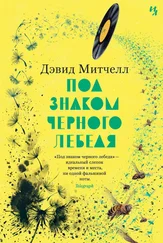We flew to New York in September 1968 for our first and only string of American performances. Dean’s anthem ‘Roll Away The Stone’ was a minor hit of the summer on both sides of the Atlantic, and our second LP, Stuff of Life , was knocking on the door of the Top Twenty of the Billboard 100. Our American label arranged a short tour in the hopes of kicking that door open. After four nights at the Ghepardo club in New York and a sheep-dip of media interviews, we flew to Los Angeles for a short residency at the fabled Troubadour club and an appearance on the not-so-fabled Randy Thorn Goes Pop! TV show. Two days later we played the Golden State International Pop Festival at the bucolic Knowland Park, on the back of which gigs in Portland, Seattle, Vancouver and Chicago were hastily arranged. For four British kids born in the forties and raised on the forbidden fruits of American music, the trip was less the stuff of life and more the stuff of dreams.
Transformative dreams, at that. The politics of 1968 were febrile and visionary. The future felt shapeable. This conviction wouldn’t reoccur until the revolutions of 1989, the Arab Spring and, arguably, the #MeToo and climate activism of the current era. Utopia Avenue were not a political band with a capital P, but the summer of riots following Martin Luther King’s assassination, the mounting body-count in Vietnam and the ‘police riot’ at the Democratic Convention in Chicago, beamed to every TV set in the nation, filled both public and private discourse. The anti-war movement was spilling out of its radical and hippie enclaves. In that highly charged atmosphere, indifference was rare. I remember Jerry Garcia telling us, ‘In 1966, whatever you wished for came true.’ In 1968, whatever you didn’t wish for also came true.
Against this volatile backdrop, the four kids we were encountered whole new ways of thinking and being. My long walk out of the closet took a major step forward during our stay at the Chelsea Hotel. Jasper was exorcising some old demons of his own, and the lyrics Dean wrote in his last few weeks spoke of a seismic self-recalibration. Musically, all of us took a quantum leap. America presented us with an all-you-can-eat musical buffet. We met peers, masters, heroes and villains. I recall conversations with Leonard Cohen about poetry; with Janis Joplin and Mama Cass Elliot about vocal technique and coloratura; with Frank Zappa about satire and fame; with a still-teenage Jackson Browne about finger-picking; with Janis Joplin about thriving as a woman in a business run by, and for, men; with Jerry Garcia about polyrhythm; and with the not-yet-signed Crosby, Stills and Nash about harmony. No young songwriter could emerge unchanged from such a milieu. What young songwriter would want to?
Between shows, Jasper, Dean and I worked on new material at our hotels and on planes, and at Gold Star Studios in Los Angeles and Turk Street Studios in San Francisco. We egged each other on. I’d think, Well, if Jasper’s got tubular bells on ‘Timepiece’, then I’ll damn well get a sitar for ‘What’s Inside What’s Inside’. I remember Dean, during the session we recorded ‘I’m A Stranger Here Myself’, telling me, ‘Okay, Holloway – I’ll meet your dulcimer and raise you a harpsichord – and in five/four time . Match that!’ Of course, the results could have been disastrous, but during our American sessions an esprit de corps spurred us all on to work in unison to make our mad ideas succeed. Griff’s role cannot be overstated. He followed where the music led and kept the rhythms purring once he got there. A band is a band because it is greater than the sum of its parts. Otherwise, why bother? By the morning of 12 October 1968, Jasper and I had laid down the bones of two new songs each, while a song Dean had written for a soundtrack expanded, like fractals, into a three-part unfinished masterpiece.
Once upon a time in the sixties, masters were stored on magnetic reel-to-reels. If these were lost or damaged, the music stored on them was irretrievably gone. Less than forty-eight hours after Dean’s death, while we were still in San Francisco awaiting the coroner’s report, Turk Street Studios burned to the ground and Levon had to tell us that the tapes from our sessions had melted in the fire. There was no hard-drive back-up, no memory sticks, no cloud. We felt that Dean had been taken from us a second time. We felt Utopia Avenue was well and truly cursed.
We flew back to London with an urn containing Dean’s ashes a few days later. The plan was to scatter them from a pier a few miles downstream from Gravesend, where Dean’s father had taught him to fish, in a low-key ceremony with just a few friends and family. As Dean used to say, however, ‘There are no secrets in Gravesend’, and over a thousand people turned up – including, thankfully, some off-duty coppers who kept the crowds away from the elderly wooden jetty. As Dean’s brother, father and grandmother emptied the urn onto the water, Jasper played ‘Roll Away The Stone’ on an amplified acoustic guitar. A thousand voices joined in. As the final note died, Jasper threw the guitar into the river. The Thames carried it and Dean’s ashes out to sea.
Is the soul a real thing? I wondered then as I wonder now. Are the unscientific majority right? Does some essence of Dean persist somehow, somewhere? Or is the notion of the soul a placebo, a comfort-blanket, a blindfold we use to spare ourselves the full awfulness of the cold, hard truth that when we die we stop ? Is Dean, in fact, as gone, as utterly gone, as a gusty autumn morning on the Thames estuary fifty-one years ago? All I know is, I don’t know – and so the answer is, ‘Maybe’. I’ll take that ‘Maybe’, however. I prefer it to ‘Definitely not’. There’s solace in ‘Maybe’.
Levon left Moonwhale and returned to Toronto to head up Atlantic’s new Canadian office. Griff returned to the jazz circuit before moving to LA in 1972 where he established himself as a go-to session and tour drummer. I released my first solo album, Driftway to Astercote in 1970. Jasper, to the dismay of his fans, retired from music and vanished into the wild blue yonder. For a few years my only contact with him was through enigmatic postcards sent from places not known for postcards. Our next face-to-face encounter was in 1976 at a Greek restaurant in New York, where he was completing a doctorate in psychology. Thereafter, Dr de Zoet would appear at my door once a year, stay for a day or two, swap stories, listen to my works-in-progress and leave. He still played the guitar for pleasure and his virtuosity was undimmed, but he resisted all attempts to lure him back into the studio. He used to shrug and say, ‘I’ve already done that. Why do it again?’
The music of Utopia Avenue outlasted the band, in a curious, up-and-down way. Dean’s death brought him even more fame than his false imprisonment, and both Paradise and Stuff of Life went gold and sold solidly for three or four years. The pages of the calendar flickered by, and glam, prog rock, disco and punk each took turns to consign all that had gone before to the bargain bins of history – including that curious psychedelic-folk-rock moment that Utopia Avenue embodied for a few months in 1967 and 1968. Moonwhale Music was bought by EMI, which filleted its small-but-perfectly-formed catalogue, and the little office at the top of the stairs in Denmark Street became a photo-library. By the mid-seventies, it was increasingly rare to find ‘Utopia Avenue’ nestled between James Taylor and the Who in record racks. Another new decade arrived, and to teenagers brought up on New Order, Duran Duran and the Eurythmics, Utopia Avenue’s songs sounded like musical antiques from an earlier age.
Читать дальше
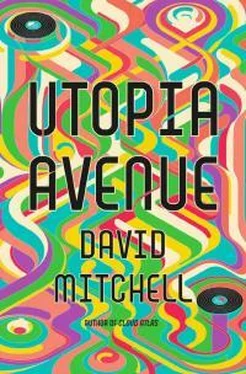
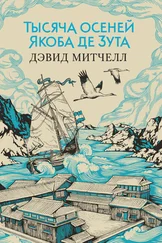
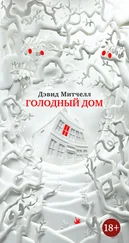
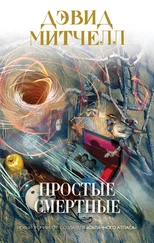

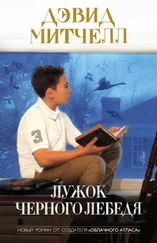
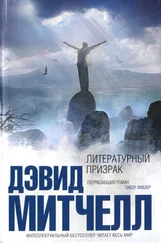
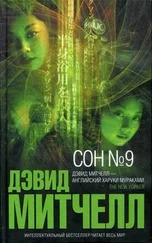
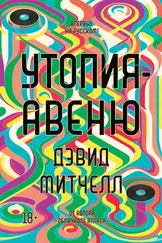
![Дэвид Митчелл - Под знаком черного лебедя [= Лужок черного лебедя]](/books/395644/devid-mitchell-pod-znakom-chernogo-lebedya-luzhok-ch-thumb.webp)
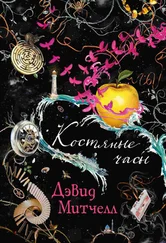
![Дэвид Митчелл - Литературный призрак [litres]](/books/432859/devid-mitchell-literaturnyj-prizrak-litres-thumb.webp)
